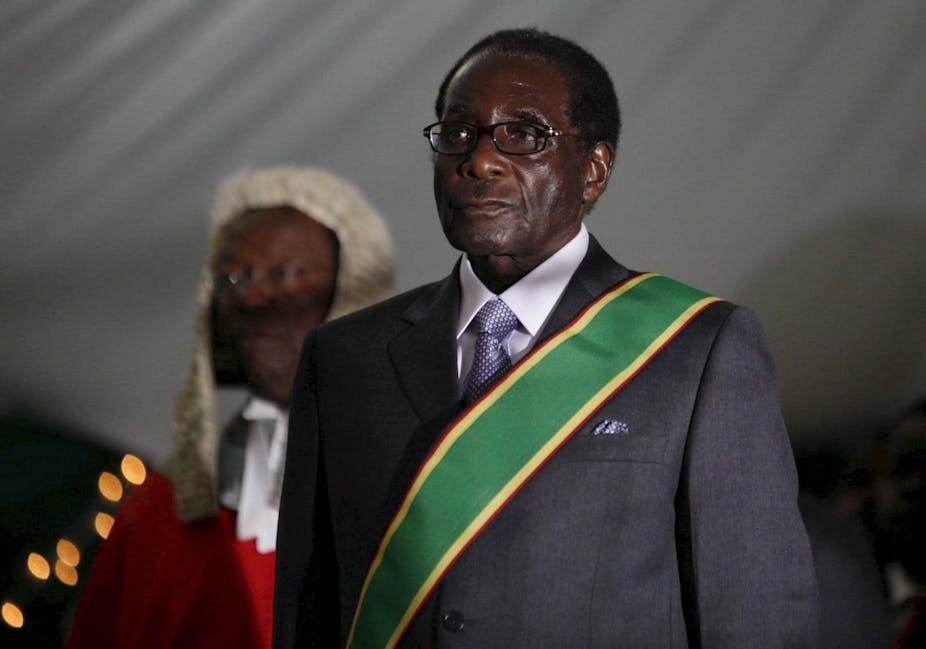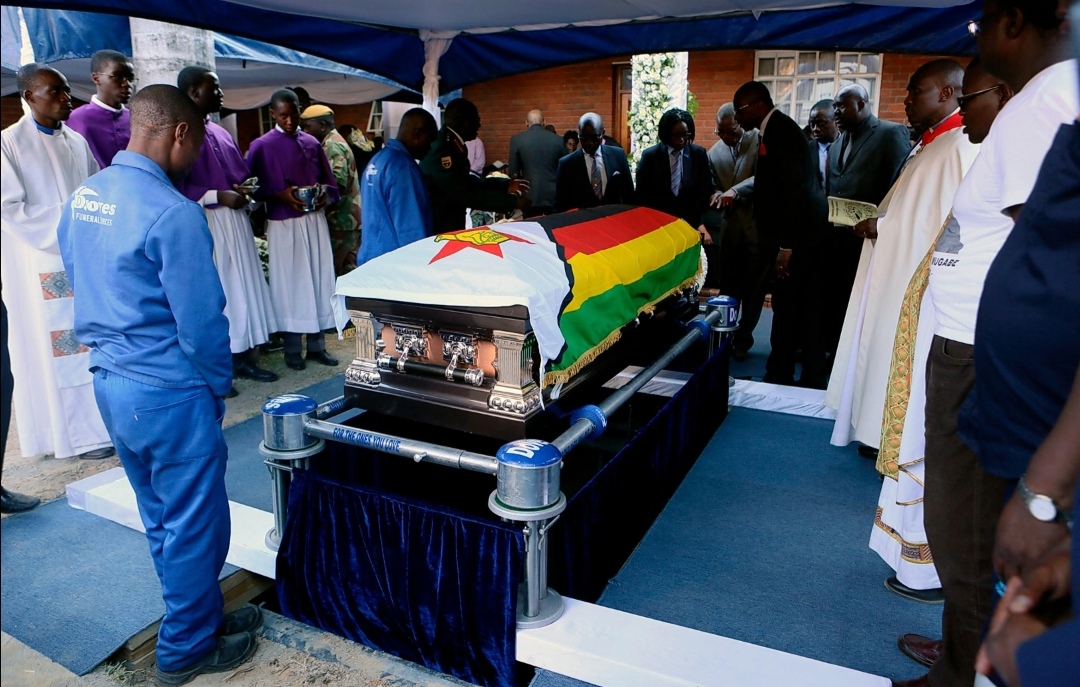
September 28, 2019, marked the day Zimbabwe’s former President Robert Mugabe was laid to rest at his rural home in Kutama, bringing an end to a tumultuous era in the country’s history. Mugabe, who passed away on September 6, 2019, at 95, left behind a complex legacy. A guerrilla leader who fought against white minority rule in Rhodesia, his 37-year rule became increasingly repressive, marred by disastrous economic and agricultural policies that drove Zimbabwe into poverty.
Mugabe’s family and the government engaged in a prolonged dispute over his final resting place. The government initially planned to bury him at the National Heroes Acre in Harare, a site reserved for heroes of Zimbabwe’s liberation struggle. However, Mugabe’s family opted for a private burial in Kutama, honoring his wish to be buried near his late mother, Bona. This decision came after weeks of disagreement, reflecting the contentious nature of Mugabe’s legacy.

On September 28, hundreds of mourners gathered at Kutama to bid farewell to the former president. Attendees included Mugabe’s widow, Grace, and their children. The ceremony was a stark contrast to the grand state funeral held in Harare two weeks prior, which was sparsely attended. Mugabe’s burial marked the conclusion of a life that significantly shaped Zimbabwe’s history, from its struggle for independence to its post-colonial era.






